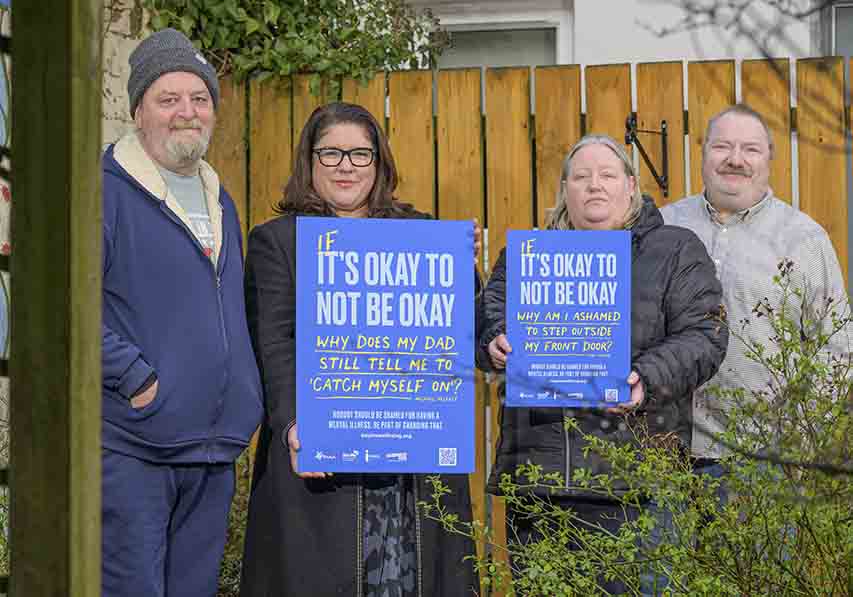Mental Health Charity Inspire challenges “It’s okay not to be okay” message with new poster campaign
Inspire says this familiar campaign of ‘its ok not to be ok’ does not reflect the shame, embarrassment and discrimination experienced by those living with mental illness.
Research from mental health charity Inspire has revealed that 64% of people feel shame because of their mental ill health.
And the research shows that while the level of stigma has decreased, in Northern Ireland 13% of adults believe that individuals living with mental ill health conditions should feel ashamed of these conditions.
“It’s okay not to be okay” is one of the most widely-used lines in mental health campaigning. But, for many facing mental illness, this does not always ring true. Shame, embarrassment and discriminatory treatment are much closer to their reality.
A new campaign from Inspire and a grouping of the UK’s leading mental health charities challenges the “It’s okay…” phrase by exposing the real-life experiences of those living with mental illness.
Campaign posters and social media posts are appearing across Northern Ireland this week to reflect the reality of their experience:
“If it’s okay not to be okay, why am I afraid to step outside my front door?”…
“If it’s okay not to be okay, why does my dad still tell me to catch myself on?”

Campaigners say the findings show that everyone in Northern Ireland has a role to play in ending shame around mental illness, in the workplace, in the media, and with the language we use in day-to-day life.
The UK Anti-Stigma Alliance, which includes Inspire in Northern Ireland, is now calling on people to mean it when they say, “It’s okay not to be okay”.
It is also appealing to the public to challenge shame and discrimination directed against those living with a mental health diagnosis and aims to understand what the “It’s okay…” phrase might actually mean for a person living with mental illness.
A quarter (26%) of respondents believe that “Totally OCD” is an acceptable everyday term; 27% expressed the same view about the word “Crazy”. “Nuts” (24%) and “A bit mental” (21%) followed closely behind.
Elsewhere, the study revealed that 14% of those polled would be concerned about working alongside someone who is living with mental illness. A majority (53%) agrees that people with mental ill health are negatively portrayed in the media.
Seven in 10 (70%) agree that society should be more considerate in the way it talks about mental health, so as to avoid upsetting or shaming others.
Campaigners say these findings cement the view that everyone in Northern Ireland has a role to play in ending shame around mental illness and that the language we use in day-to-day life can very much affect how somebody perceives themselves.
Kerry Anthony MBE, CEO of Inspire, an Anti-Stigma Alliance partner, said: “Inspire supports over 25,000 people a year and many of them live with serious mental illnesses.
“We hear about how their friends, families, communities and even their GPs can make them feel ashamed. But we also know about how they feel ashamed of themselves.
“This campaign is about challenging the narrative that many of us know and employ so often.
“We aren’t saying that the phrase ‘It’s okay not to be okay’ is wrong. However, the question we’re asking is this: if it’s okay not to be okay then why are people still experiencing shame and discrimination around their mental health diagnoses?
“We are here to say that living with mental ill health does not mean that they are alone. Nor should they feel shame. We are here to help and support them.
“As a society, we have a long way to go. Over half the population believes that mental illness and shame are linked. We want to send a clear message that nobody should be ashamed of their mental ill health.
“By reflecting on our own attitudes and behaviours, we can develop self-awareness. Whether it’s thinking about the language we use, educating ourselves or reaching out for support, we can all play a role in changing lives for the better.”
For information about If It’s Okay, including advice and information for anyone living with mental ill health, please visit:
























